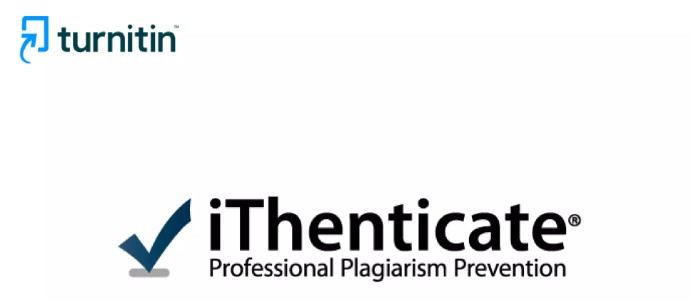The Effect of REACT Learning Model on Mathematics Problem Solving Ability
DOI:
https://doi.org/10.36709/jpm.v13i2.4Keywords:
learning model, mathematical problem solving, REACT learningAbstract
REACT is a development model of contextual learning, to help teachers relate learning material to the real world. This study aims to determine the effect of the REACT learning model on the mathematical problem solving abilities of junior high school students. The populations of this study were all grade VII students of SMP Negeri 2 Unaaha in the academic year 2019/2020 which was distributed in 5 classes. The sample was determined using purposive sampling technique, so that two classes were selected as samples, namely class VII1 as the experimental class and class VII2 as the control class. The research design used a posttest-only control design. The research instrument used teacher and student activity observation sheets, and tests of mathematical problem solving abilities. The observation data was collected during the learning process using the REACT learning model, while the data from the problem-solving ability test was carried out during the posttest. The results showed that there was a significant effect of the REACT learning model on the mathematical solving ability of grade VII students of Junior High Schools. The REACT learning model can develop students' creative thinking so that they can construct their own concepts and knowledge.
References
Anas, A., & Fitriani, A. (2018). Penerapan Model Pembelajaran REACT dalam Peningkatan Pemahaman Konsep Siswa. Al-Khwarizmi: Jurnal Pendidikan Matematika dan Ilmu Pengetahuan Alam, 6(2), 157-166. https://doi.org/10.24256/jpmipa.v6i2.338
Cahyono, B. A. D., Sutarto, S., & Mahardika, I. K. (2017). Model Pembelajaran REACT (Relating, Experiencing, Applying, Cooperating, Transfering) disertai Media Video Kejadian Fisika Terhadap Keterampilan Proses Sains dan Hasil Belajar Siswa dalam Pembelajaran Fisika di SMA. Jurnal Edukasi, 4(3), 20-24.
CORD. (1999). Teaching Mathematics Contextually. Texas. CORD Communications, Inc.
Durotulaila, A. H. Masykuri, & Mulyani, B. (2014). Pengaruh Model Pembelajaran React (Relating, Experiencing, Applying, Cooperating, Transfering) Dengan Metode Eksperimen Dan Penyelesaian Masalah Terhadap Prestasi Belajar Ditinjau Dari Kemampuan Analisis Siswa (Studi Pembelajaran Larutan Penyangga Di SMA. Jurnal Pendidikan Kimia (JPK), 3(4), 67-74
Fauziah, A. (2010). Peningkatan Kemampuan Pemahaman Dan Pemecahan Masalah Matematik Siswa SMP Melalui Strategi REACT. Forum kependidikan, 30(1), 1-13.
Herlina, E., & Ilmadi, I. (2022). The Implementation of REACT Strategy in Training Students’ Higher Order Thinking Skills (HOTS). Ta'dib, 25(1), 47-58.
Karsli, F., & Yigit, M. (2017). Effectiveness of the REACT Strategy on 12th Grade Students’ Understanding of the Alkenes Concept. Research in Science and Technological Education, 35(3), 274–291. http://dx.doi.org/10.31958/jt.v25i1.5049
Lestari, S. (2019). Penerapan strategi “REACT” dalam pembelajaran Fisika Di SMA Muhammadiyah 2 Yogyakarta. Jurnal Adikarsa, 15, 12-20
Lestari, L. A., Sahputra, R., & Lestari, I. (2021). Penerapan Model REACT terhadap Pemahaman Konsep Siswa Kelas XI SMA. Orbital: Jurnal Pendidikan Kimia, 5(2), 151-162. https://doi.org/https://doi.org/10.19109/ojpk.v5i2.9396
Marthen, T. (2010). Pembelajaran melalui pendekatan REACT meningkatkan kemampuan matematis siswa SMP. Jurnal Penelitian Pendidikan, 11(2), 11-20
National Council of teacher of Mathematic (NCTM). (2000). Principles and Standarts for School Mathematic. Reciton. VA: NCTM.
Nurhayati, K. D., Sukestiyarno, Y. L., & Mulyono, M. (2021). The effectiveness of the CTL learning model using REACT strategy with the mind map and the influence of learning independence on students' mathematical connection ability. Unnes Journal of Mathematics Education, 10(3), 194-200. https://doi.org/10.15294/ujme.v10i3.53634.
Nurzannah, N., Muliana, M., Herizal, H., Fajriana, F., & Mursalin, M. (2021). The effect of REACT strategy assisted by GeoGebra software on students' mathematical representation ability. Malikussaleh Journal of Mathematics Learning (MJML), 4(2), 90-97. https://doi.org/10.29103/mjml.v4i2.5709
OECD. (2016). PISA 2015 Assesment And Analytical Framework. Paris: OECD Publisher.
Polya. G. (2004). How to Solve It: A New Aspect of Mathematical Method (Second ed). New Jersey: Princeton University Press.
Siswouyono, M., & Susilo, B. E. (2016). Komparasi Pembelajaran SAVI dan REACT pada Kemampuan Pemecahan Masalah Siswa kelas VIII Materi Kubus dan Balok. Jurnal Tadris Matematika, 9(2), 15-32. https://doi.org/10.20414/betajtm.v9i1.3
Sugiyono. (2016). Metode Penelitian, Kualitatif dan R & D. Bandung: Alfabeta
Widodo, S. A. (2015). Keefektivan Team Accelerated Instruction Terhadap Kemampuan Pemecahan Masalah dan Prestasi Belajar Matematika Siswa Kelas VIII. Kreano, Jurnal Matematika Kreatif-Inovatif, 6(2), 127-134. https://doi.org/10.15294/kreano.v6i2.4388
Downloads
Published
How to Cite
Issue
Section
License
Copyright (c) 2022 La Masi, La Misu, Dian Pitasari

This work is licensed under a Creative Commons Attribution 4.0 International License.







